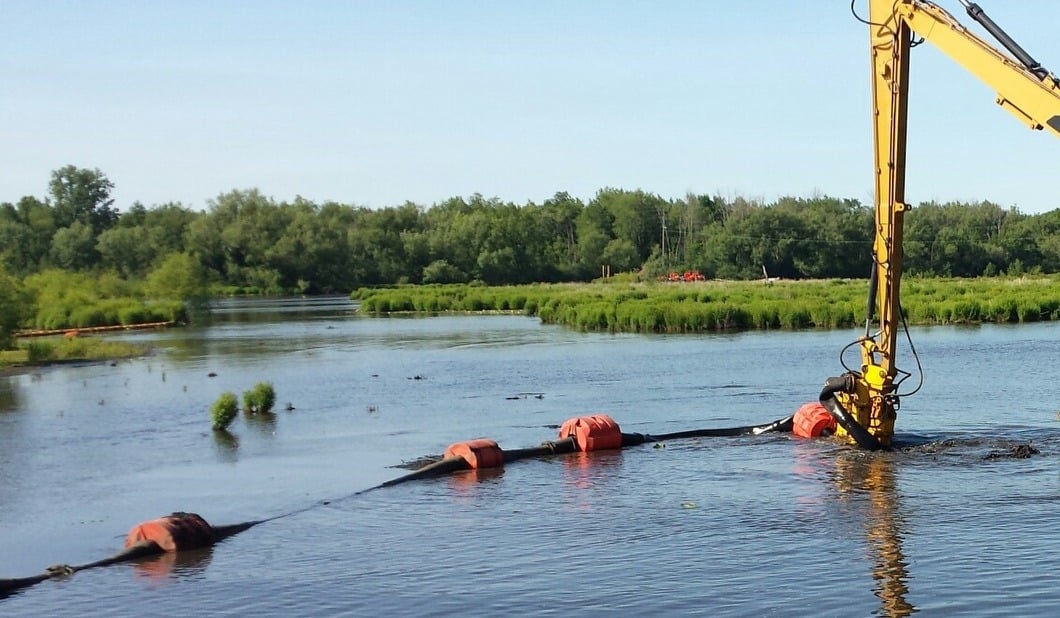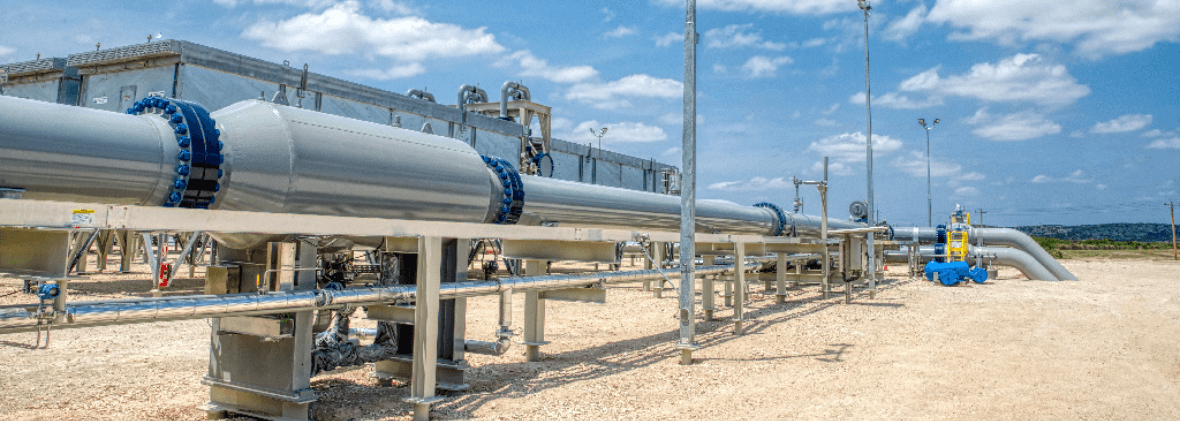A Comprehensive Overview to the Various Sorts Of Oil Field Equipment and Pipeline Equipment Available
The oil and gas sector depends greatly on specific equipment for reliable removal and transportation. Numerous sorts of equipment, from drilling rigs to tank, play important functions in this intricate procedure. Each piece of tools serves distinctive functions that add to overall operational success. Comprehending these components is crucial for any person involved in the field. As the industry advances, so too do the technologies that sustain it. What developments are on the horizon?

Drilling Rigs: The Backbone of Oil Expedition
Drilling rigs serve as the necessary equipment in the domain name of oil exploration, making it possible for business to accessibility hydrocarbon reserves hidden deep below the Planet's surface. These rigs are available in various types, consisting of land rigs, offshore rigs, and mobile systems, each created to run in particular atmospheres. Outfitted with innovative technology, piercing rigs can pass through geological formations with precision, making certain efficient resource removal. The structural stability and functional capacities of these rigs are vital, as they have to stand up to extreme problems and significant pressures. The choice of a boring gear affects the overall project cost and timeline, making it a crucial factor to consider for oil firms looking for to maximize their expedition initiatives and make the most of productivity in their procedures.
Pumps: Essential for Fluid Movement
In the oil extraction process, the duty of pumps is significant, helping with the movement of fluids throughout numerous stages of production. Pumps are important for transferring petroleum, water, and various other fluids from below ground tanks to the surface and after that through pipes to refineries. They are available in different kinds, including centrifugal, favorable displacement, and submersible pumps, each offering details purposes based on the fluid characteristics and functional requirements. Centrifugal pumps are generally used for their effectiveness in high-flow applications, while positive displacement pumps excel in handling viscous liquids. The option of pump impacts general effectiveness, operational security, and upkeep expenses. Appropriate selection and upkeep of pumps are vital for optimizing production and reducing downtime in oil area operations.
Shutoffs: Controlling Flow and Pressure

Shutoffs play an important role in handling the circulation and stress of fluids within oil areas and pipes. Various sorts of shutoffs serve unique applications, each designed to satisfy details features essential for efficient procedure - Superior Rentals near me. Recognizing the characteristics and uses these valves is essential for maximizing system performance and safety and security
Sorts of Valves
Crucial components in oil area operations, valves play a crucial role in controlling the flow and pressure of fluids within pipelines and devices. Different kinds of valves are made use of to fulfill the varied requirements of oil and gas production. Common types consist of gateway shutoffs, which supply a straight-line flow and minimal pressure decline; globe valves, recognized for their strangling abilities; and ball valves, identified for their quick on/off control. Additionally, check valves protect against heartburn, while butterfly shutoffs offer a light-weight remedy for controling circulation. Each valve type is designed with specific products and configurations to withstand the rough problems commonly found in oil fields, guaranteeing reliability and efficiency in procedures. Understanding these types is essential for efficient system management.
Valve Applications and Features
While different types of valves serve distinctive functions, their key applications rotate around managing circulation and stress within oil and gas systems. Valves such as gateway, world, and sphere shutoffs control liquid movement, making certain peak performance and security. Entrance shutoffs are frequently made use of for on/off control, offering marginal circulation resistance. World shutoffs, on the other hand, offer exact flow regulation, making them ideal for throttling applications. Sphere valves are preferred for their quick operation and limited securing capabilities. Additionally, pressure alleviation shutoffs are essential for preventing system overpressure, protecting tools stability. On the whole, the appropriate choice and application of shutoffs enhance operational effectiveness, ensuring the trusted transport of oil and gas through pipes and handling facilities.
Compressors: Enhancing Gas Transportation
Compressors play an important role in the efficient transport of all-natural gas, ensuring that it moves smoothly via pipelines over cross countries. These devices enhance the stress of natural gas, permitting it to overcome friction and elevation adjustments within the pipeline system. Furthermore, compressors help with the harmonizing of supply and need, accommodating fluctuations in usage and manufacturing prices. Numerous kinds of compressors are utilized in the market, including centrifugal, reciprocating, and rotating screw compressors, each offering distinctive advantages based on the operational requirements. Regular upkeep of these compressors is important to make the most of efficiency and reduce downtime, eventually contributing to a trustworthy gas transport network. Their vital function highlights the relevance of compressors in the total oil and Discover More gas framework.
Storage Tanks: Safe and Reliable Fluid Monitoring
Effective transport of gas relies upon different support group, one of which is the correct administration of storage containers. These storage tanks play a necessary function in safely having fluids, ensuring that functional efficiency is maintained while minimizing ecological threats. Created from long lasting materials, they are designed to stand up to high pressures and destructive elements. Effectively sized and purposefully situated, storage space tanks promote the smooth flow of gas and other liquids, avoiding traffic jams in supply chains. Regular upkeep and monitoring are necessary to detect leakages or structural issues, promoting security and compliance with regulative standards. Inevitably, the effective management of storage space containers is crucial for the overall stability and dependability of the oil and gas market's fluid handling systems.
Pipeline Solutions: Facilities for Transport
Pipeline systems function as the foundation of the oil and gas industry, promoting the reliable transportation of hydrocarbons over substantial ranges. These systems consist of various elements, consisting of pipelines, valves, pumps, and compressors, all meticulously developed to assure seamless circulation. The materials used in pipeline building and construction, frequently steel or high-density polyethylene, are chosen for sturdiness and resistance to corrosion. Pipeline networks can cover throughout land and water, linking production websites to refineries and circulation. Furthermore, progressed innovation makes it possible for real-time surveillance of circulation rates and pressure levels, boosting operational efficiency. The strategic placement of these pipes reduces ecological impact while taking full advantage of resource ease of access, thus playing an important function in meeting energy needs internationally.
Safety Equipment: Guaranteeing Employee and Environmental Management
The procedure of pipeline systems, while essential for power transport, likewise provides substantial security challenges for employees and the environment. Safety tools plays a significant role in mitigating these dangers. Individual protective equipment (PPE) such as safety helmets, gloves, and non-slip footwear safeguards employees from physical hazards. Furthermore, gas detection systems keep track of for leaks, guaranteeing that damaging materials do not posture a threat to workers or the surrounding environment. Emergency shutdown systems are important for rapidly halting procedures during a situation, avoiding potential disasters. Spill containment materials, including absorbents and obstacles, are basic for minimizing ecological influence. On the whole, investing in comprehensive safety equipment is important for keeping functional honesty and safeguarding both employees and the atmosphere in the oil and gas field.

Regularly Asked Questions
How Do I Choose the Right Oil Field Equipment for My Task?
Selecting the appropriate oil area equipment involves evaluating job specs, budget plan restraints, and operational requirements. Take into consideration variables such as tools integrity, compatibility with existing systems, and the distributor's track record to assure peak performance and safety and security.
What Are the Maintenance Needs for Oil Field Equipment?
Maintenance needs for oil field tools consist of regular assessments, lubrication, and timely repair work. Operators should likewise stick to supplier standards, screen performance metrics, and assurance compliance with security policies to improve durability and performance.

Exactly How Can I Guarantee Compliance With Environmental Laws?
To guarantee compliance with ecological guidelines, companies need to conduct normal audits, execute ideal practices, purchase training, keep correct documentation, and stay upgraded on legislation (Superior Rentals reviews). Collaboration with environmental companies can also enhance adherence to policies
What Is the Ordinary Life Expectancy of Pipeline Equipment?
The average life expectancy of crawler loader for sale pipeline equipment commonly varies from 20 to half a century, depending on elements such as material quality, environmental problems, and upkeep techniques. Routine examinations additional reading can greatly affect durability and functional efficiency.
How Do I Securely Transfer Oil Field Equipment to Remote Locations?
Moving oil field equipment to remote locations calls for careful planning, consisting of course assessment, safeguarding authorizations, utilizing appropriate vehicles, and making certain safety and security protocols are followed. Proper training and interaction among staffs are crucial for successful transportation.